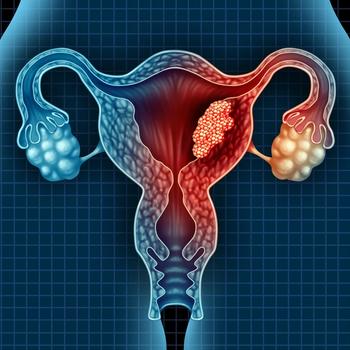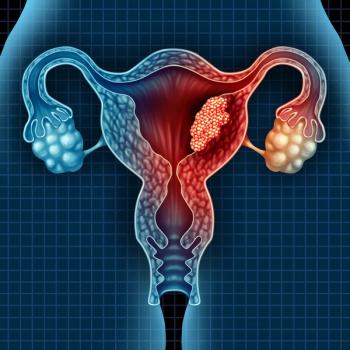
Patient Tolerability with Lenvatinib plus Pembrolizumab
David O’Malley, MD, details patient tolerance and associated adverse events with lenvatinib plus pembrolizumab for advanced endometrial carcinoma.
Episodes in this series

Transcript:
David O’Malley, MD: Lenvatinib plus pembro [pembrolizumab] tolerance is at times challenging. When we really look at the reports, you will have about half the patients, if not a little bit more, who will require a dose reduction. The most common dose given is actually 14 milligrams. The current recommended starting dose is 20 milligrams. Because patients in my practice, have – well, not in just my practice, in all practices – have such a high chance of dose reduction, I actually start with 18 milligrams, because the way it's dispersed, it's much easier dose reduced from 18 down to 14. Well, if you get the 20 milligrams, you just get the 2 milligrams – the 2 10-milligram tabs. So actually, by using the 18 milligrams, you get the 10-milligram tabs and 2 4-milligram tabs, and then it's much easier to dose reduce. I do think there may be something with regards to induction, getting a higher dose in there, because we really look at the time to first response. It’s at that first assessment. Now saying that, there are some pretty significant toxicities and it can be challenging to get patients through the first couple of cycles. I tell my patients [that it] is going to be rough for a couple of months, but we’ll get you there. The most common thing you have to worry about early on is hypertension. So, making sure the patients have even prescriptions available to them so that they can take them and [don’t] have to wait to get a hold of somebody. But we give them very strict guidelines in with regards to taking their medication and calling if their blood pressure jumps up. But then you'll also see a fair amount of diarrhea with lenvatinib and fatigue. We also see rashes, and over chronic use, weight loss. With the combination, the occurrence of thyroid disorder is relatively high.
David O’Malley, MD: With that, it's very important to educate the patience with regards to some of the side effects and then dose reduce, dose interrupted, dose reduce. We actually do weekly visits with the patients for at least the first cycle. In some patients, we do this through several cycles. We do video visits to make it more convenient for the patients, really making sure that we're keeping on top of the patient's symptoms to assure that they don't get so far behind that they can get in trouble, or they want to stop therapy. And by utilizing these tasks, educating the patient, making sure our nursing team as well as our APP [advanced practice provider]team are having frequent interactions with the patients and then having video visits weekly. And obviously, the face-to-face every 3 weeks with the pembro [pembrolizumab]infusions, has really made a significant improvement into our tolerance in our patient practice. I have many amazing stories with regards to not only responses, but sustained responses.
Transcript edited for clarity.
Newsletter
Stay up to date on recent advances in the multidisciplinary approach to cancer.







































